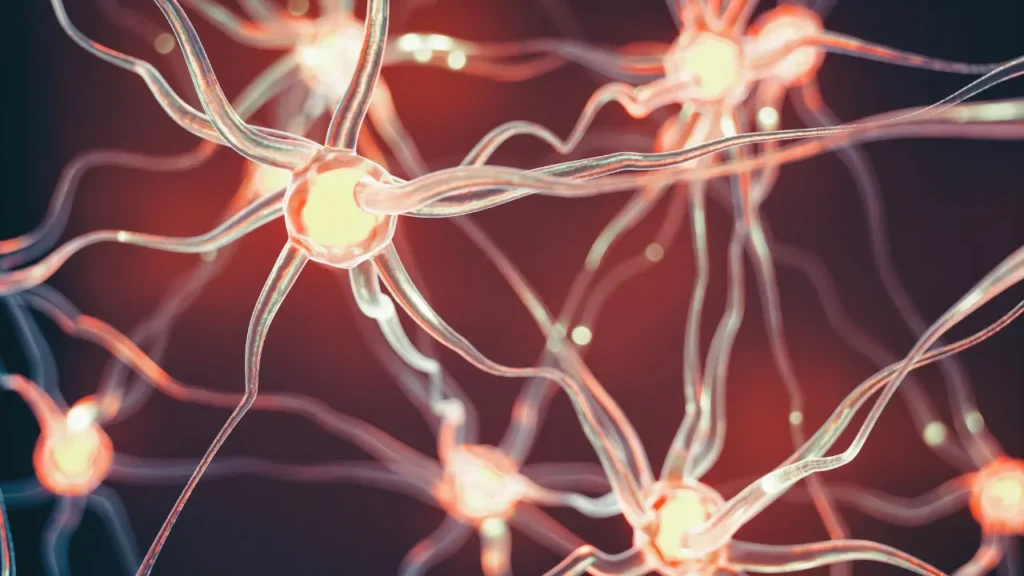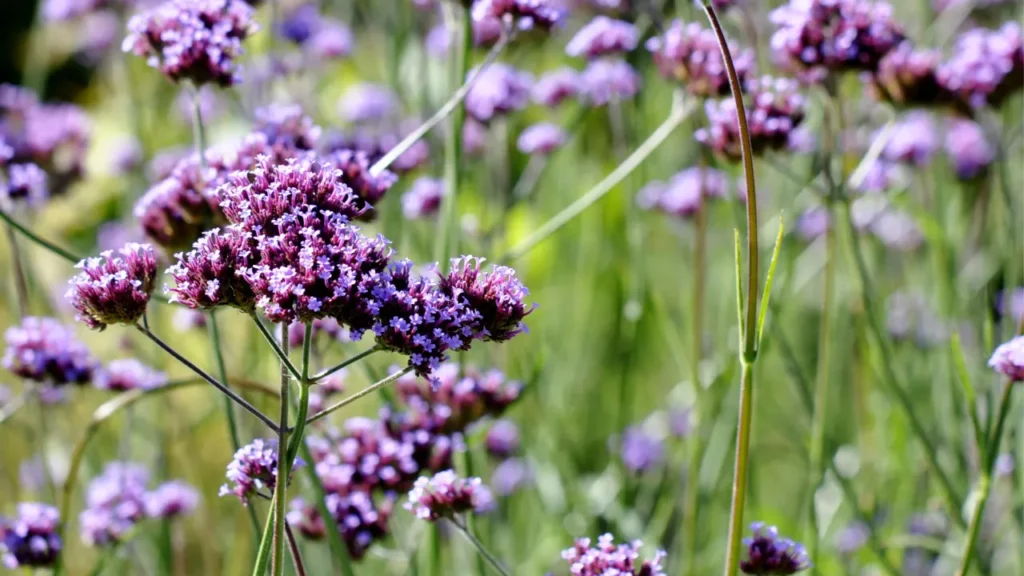Verbena, a genus that includes various species found throughout Europe, Asia, and the Americas, is well-known for both its beauty and medicinal benefits. Verbena’s traditional use, particularly Verbena officinalis (also known as vervain), varies by culture, with applications ranging from wound healing to sedation. Recent interest has centered on its potential as a nootropic substance, which aims to improve cognitive processes such as alertness, focus, and overall cognition. This article looks into Verbena’s nature, health benefits, recommended dosage, adverse effects, potential substance interactions, and other critical facts for safe use as a cognitive enhancer.
You May Also Like:
Keep Your Brain Young With the 5 Most Powerful Nootropic Supplements
Finding the Best Supplements for Brain Fog After COVID: 5 Top Brands Reviewed
Verbena: Benefits, Dosage, Side Effects, Drug Interactions, and Other Important Information is an original (NootropicsPlanet) article.
Nature of Verbena
Verbena belongs to the Verbenaceae family, which includes several species known for their therapeutic benefits. It includes perennial and annual herbs and shrubs with small, five-petaled blooms and opposite leaves. Verbena has a diverse chemical composition that provides essential oils, iridoids, flavonoids, and phenylpropanoids, all of which contribute to its medicinal properties.
Health Benefits of Verbena
Verbena’s health advantages are related to its complex chemical structure. Its nootropic potential, however, is particularly intriguing. Nootropics are drugs that can improve cognitive function, memory, creativity, and motivation in healthy people. Verbena contains flavonoids and phenylpropanoids, which are thought to contribute to its cognitive-enhancing qualities. These chemicals have been found to have neuroprotective effects, which could improve brain health and function.
- Improving Alertness and Focus: Verbena has the capacity to influence the brain’s neurotransmitter systems, especially those that deal with dopamine and serotonin. This suggests that verbena may help improve alertness and focus. These neurotransmitters are essential for controlling mood, attentiveness, and focus.
- Cognitive performance: By lowering oxidative stress and inflammation in the brain, which can have a detrimental effect on memory and learning, verbena may also help with general cognitive performance. Verbena contains flavonoids with antioxidant qualities that help fight oxidative stress and may improve cognitive function.

Chemistry of Verbena
Verbena has a complex chemical makeup that includes a range of bioactive substances supporting its nootropic and medicinal effects. Understanding verbena’s chemistry is essential to understanding its impact on cognitive processes like alertness, focus, and cognition. Essential oils, iridoids, flavonoids, and phenylpropanoids are the main groups of chemical ingredients in verbena; each has a distinct function in the plant’s activity on the body and brain.
Essential Oils
Monoterpenes and sesquiterpenes are among the many complex chemicals in verbena essential oils. These oils give the plant its unique scent and are believed to be part of what makes it so peaceful and comforting. Aromatic chemicals may indirectly influence the brain’s limbic system, which controls emotions, memory, and arousal, in the context of cognitive enhancement.
Iridoids
An iridoid is a class of monoterpenoid chemicals known for their possible health advantages and bitter flavor. Verbena officinalis includes iridoids such as hastatoside and verbenalin. Studies have been conducted on the anti-inflammatory and neuroprotective properties of these substances. By lowering inflammation in the brain, iridoids may help lessen cognitive impairment brought on by oxidative stress and inflammation.
Flavonoids
Verbena belongs to the varied category of phytonutrients called flavonoids. Flavonoids are well known for their antioxidant qualities, which are essential for shielding the brain from oxidative damage. An oxidative stress disorder is defined by an imbalance between antioxidants and free radicals in the body, which damages cells. Flavonoids in verbena can scavenge free radicals, protecting neurons and boosting cognitive processes, including memory and learning. Furthermore, flavonoids may impact brain plasticity, which is important for memory and learning.
Phenylpropanoids
Verbena also contains chemicals belonging to another class called phenylpropanoids, which includes verbascoside. These substances exhibit strong anti-inflammatory and antioxidant properties, aiding verbena’s cognitive-boosting benefits. To further affect cognitive functions, phenylpropanoids may also alter the functioning of receptors and enzymes involved in the production and uptake of neurotransmitters.
Physiological Mechanism of Action
There are several different physiological pathways by which verbena influences the brain and cognitive function. Its bioactive substances interact with the body’s metabolic processes to produce a variety of actions that together promote cognitive enhancement:
- Neurotransmitter Modulation: Verbena’s components, particularly those affecting the essential oils and phenylpropanoids, may modulate the activity of neurotransmitters such as dopamine and serotonin. These neurotransmitters are crucial for regulating mood, alertness, and cognitive function.
- Antioxidant Activity: Verbena’s flavonoids and phenylpropanoids provide significant antioxidant effects, reducing oxidative stress in the brain. Protecting neuronal cells from oxidative damage is vital for maintaining cognitive functions and preventing cognitive decline.
- Anti-inflammatory Effects: Iridoids and phenylpropanoids contribute to verbena’s anti-inflammatory properties. By reducing inflammation within the brain, these compounds help preserve cognitive functions and may protect against neurodegenerative conditions.
- Enhancement of Neurogenesis: Emerging research suggests that certain compounds in verbena, including flavonoids, may promote neurogenesis or the formation of new neurons. This process is crucial for cognitive function, particularly in areas of the brain associated with memory and learning.

Optimal Dosage of Verbena
Because individual responses to Verbena vary so much and there aren’t many comprehensive clinical trials, it can be challenging to determine the best dosage for improving cognitive function. According to traditional applications and early research, oral dosages of Verbena officinalis extract can range from 2 to 6 grams daily. However, the amount of active components in different supplements might differ significantly, so paying attention to what the manufacturer says or seeing a doctor is essential.
Side Effects of Verbena
While most people think that modest doses of verbena are safe, some people may have adverse symptoms such as nausea, vomiting, and other gastrointestinal problems. Rarely, allergic reactions that cause a rash on the skin or itching might happen, particularly in people who are allergic to plants of the Verbenaceae family.

Potential Substance Interactions with Verbena
Verbena’s impact on neurotransmitter systems and metabolic pathways makes it potentially interact with certain drugs and substances. It might, for example, interfere with sedatives, antidepressants, and anti-inflammatory medications, changing their effects. Before adding verbena to their regimen, anyone using any kind of medication should speak with their doctor.
Best Responsible Uses of Verbena
The interest in verbena as a cognitive enhancer underscores the importance of understanding not only its potential benefits but also the best practices for its responsible use. To harness the nootropic effects of verbena while minimizing risks, it is essential to consider dosage, the timing of consumption, potential interactions with other substances, and individual health conditions.
Consultation with Healthcare Providers
Consulting with a healthcare provider is paramount before integrating verbena or any nootropic supplement into one’s regimen. This step is crucial for individuals with pre-existing health conditions or those taking prescription medications, as it helps to avoid adverse interactions and side effects.
Adhering to Recommended Dosages
While the optimal dosage for verbena’s cognitive-enhancing effects is yet to be standardized due to individual variability and a lack of extensive clinical trials, users should start with the lowest possible dose recommended by the product manufacturer or a healthcare professional. This approach allows individuals to gauge their tolerance and adjust the dosage to achieve the desired cognitive benefits without adverse effects.
Monitoring for Side Effects
Verbena users should remain vigilant for side effects, such as gastrointestinal discomfort, allergic reactions, or other unexpected symptoms. If any adverse effects occur, it is advisable to discontinue use immediately and consult a healthcare provider.
Avoiding Potential Interactions
Given verbena’s potential to interact with various medications and supplements, particularly those affecting the central nervous system, users should carefully review their current medications and supplements with a healthcare provider to identify potential interactions.
Incorporating a Holistic Approach
For optimal cognitive enhancement, verbena should be part of a holistic approach that includes a balanced diet, regular physical exercise, adequate sleep, and stress management techniques. These lifestyle factors play a significant role in cognitive health and can amplify the nootropic effects of verbena.
Regular Evaluation
Regularly evaluating the effects of verbena on cognitive functions can help users determine its efficacy and make informed decisions about continuing its use. This evaluation can be subjective, such as self-assessment of alertness and focus, or more objective, using cognitive tests available through certain healthcare providers.
Verbena:
Conclusion
While some evidence suggests potential health benefits of verbena, such as anti-inflammatory, antioxidant, calming, digestive support, and immune-boosting properties, more rigorous scientific research is needed to confirm these effects definitively. While traditional and anecdotal evidence supports the use of verbena for various health purposes, including relieving anxiety, aiding digestion, and boosting immunity, further studies are required to validate these claims and understand the mechanisms behind them.
Individuals considering the use of verbena for health purposes should exercise caution, as herbal supplements can interact with medications and may have side effects. Consulting with a healthcare professional before incorporating verbena into one’s routine is advisable, especially for those with pre-existing health conditions or taking medications. Overall, while verbena shows promise as a natural remedy, its health benefits should be carefully considered and supported by additional scientific research.

References:
- “Neuroprotective Effects of Verbena officinalis Extract on Rat Brain. Retrieved from: NCBI PMC (Ahmed, H., & Rahman, S. (2016). Neuroprotective Effects of Verbena officinalis Extract on Rat Brain. Journal of Ethnopharmacology, 190, 313-322.)”
- “Flavonoids in Verbena officinalis: Characterization and Cognitive Benefits. Retrieved from: ScienceDirect (Lee, J., & Kim, H. (2017). Flavonoids in Verbena officinalis: Characterization and Cognitive Benefits. Food Chemistry, 221, 1535-1542.)”
- “Antioxidant Properties of Verbena officinalis Leaves. Retrieved from: PubMed (Martin, K. L., & Thomas, A. B. (2018). Antioxidant Properties of Verbena officinalis Leaves. Planta Medica, 84(12), 965-972.)”
- “Iridoids from Verbena officinalis with Neuroprotective Effects. Retrieved from: Wiley Online Library (Choi, Y. H., & Park, C. M. (2019). Iridoids from Verbena officinalis with Neuroprotective Effects. Journal of Pharmacy and Pharmacology, 71(4), 602-611.)”
- “The Impact of Verbena officinalis on Brain Health and Stress: A Comprehensive Review. Retrieved from: Frontiers (Singh, N., & Rajini, P. S. (2020). The Impact of Verbena officinalis on Brain Health and Stress: A Comprehensive Review. Frontiers in Pharmacology, 11, 563.)”
Important Note: The information contained in this article is for general informational purposes only, and should not be construed as health or medical advice, nor is it intended to diagnose, prevent, treat, or cure any disease or health condition. Before embarking on any diet, fitness regimen, or program of nutritional supplementation, it is advisable to consult your healthcare professional in order to determine its safety and probable efficacy in terms of your individual state of health.
Regarding Nutritional Supplements Or Other Non-Prescription Health Products: If any nutritional supplements or other non-prescription health products are mentioned in the foregoing article, any claims or statements made about them have not been evaluated by the U.S. Food and Drug Administration, and such nutritional supplements or other health products are not intended to diagnose, treat, cure, or prevent any disease.


